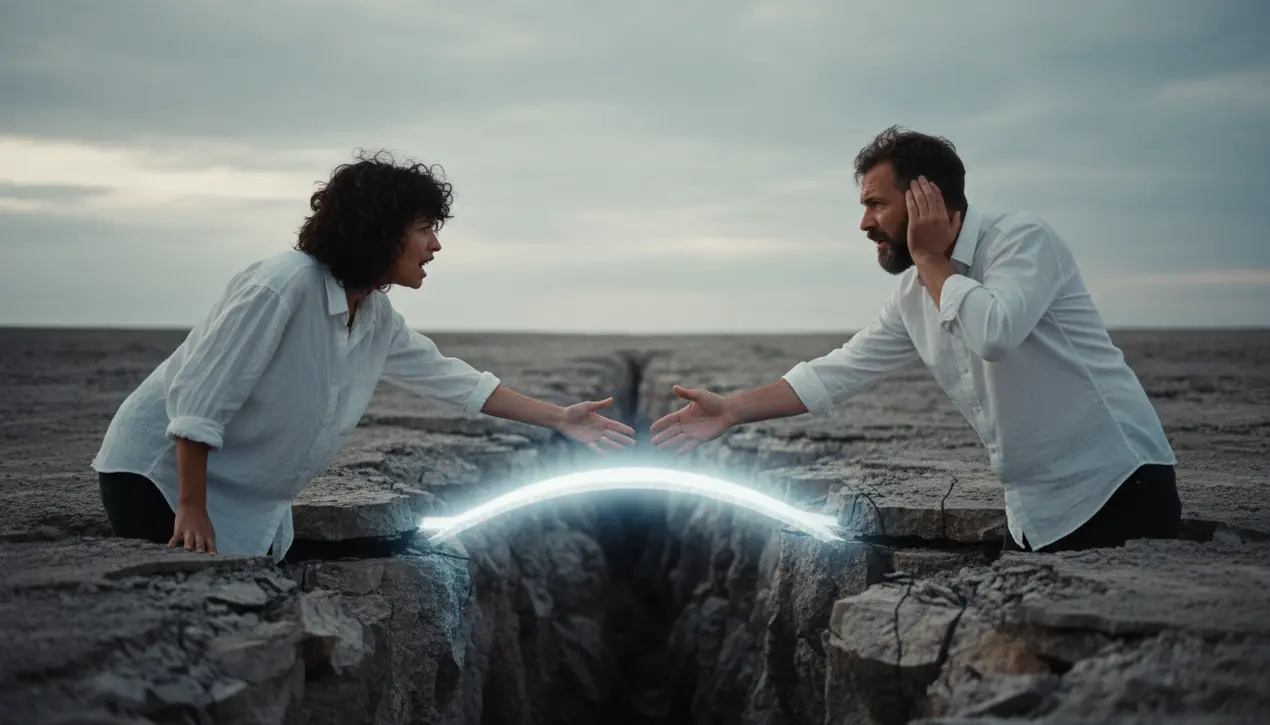
OthereducationEdTech Innovations
The Courage to Listen: How to Mend Fractured Conversations
LA
Laura Bennett
2 hours ago7 min read2 comments
It begins with a spark—that rare, electric connection where two people feel completely understood. Then, inevitably, comes the moment the illusion shatters.You find yourselves dangling over a precipice, clinging to the relationship with one hand while the other gestures wildly, each person sparring for their version of reality to be crowned the truth. This breakdown in communication is a timeless human drama, and our response in that suspended moment defines everything.In 1951, against the ominous backdrop of the Cold War, pioneering psychologist Carl R. Rogers addressed the Centennial Conference on Communications.His message, however, was for everyone: neighbors, spouses, colleagues—any two people who had ever talked past one another. Rogers proposed a radical, deceptively simple solution.The key to bridging the chasm isn't to talk more, but to listen with a genuine intention to understand. He championed 'active listening,' an empathetic practice where you set aside your own judgments to truly grasp the feeling and perspective behind the other person's words.It involves reflecting back what you've heard to confirm understanding—'So, if I'm hearing you correctly, you felt dismissed when I said that?' This act of validation is not an agreement; it is the crucial acknowledgment that the other person's reality is real to them. It is the first step out of the sparring ring and back onto solid ground.Through interviews with dozens of couples, a universal pattern emerges: conflict is rarely about the surface issue, be it a dishwasher or a financial decision. It is about the unmet, fundamental need to feel heard.When someone says, 'You never listen to me,' the deeper plea is often, 'You never see me. ' Rogers understood that this empathetic listening creates psychological safety, allowing for vulnerability.From that place of vulnerability, genuine dialogue can finally begin. This approach is the antithesis of the defensive, score-keeping communication that poisons so many of our exchanges, both personal and political.Applying it is not about winning an argument; it is about preserving the connection. It requires a quieting of the ego and a conscious effort to step into another's world.In an era that shouts to be heard, the most revolutionary act is to listen with the soul of a curious friend, not a lawyer building a rebuttal. This is how we mend the fractures—not with louder words, but with a quieter, more courageous kind of attention.
#communication
#psychology
#Carl Rogers
#relationships
#conflict resolution
#featured
Stay Informed. Act Smarter.
Get weekly highlights, major headlines, and expert insights — then put your knowledge to work in our live prediction markets.
Related News
Comments
Loading comments...
© 2025 Outpoll Service LTD. All rights reserved.